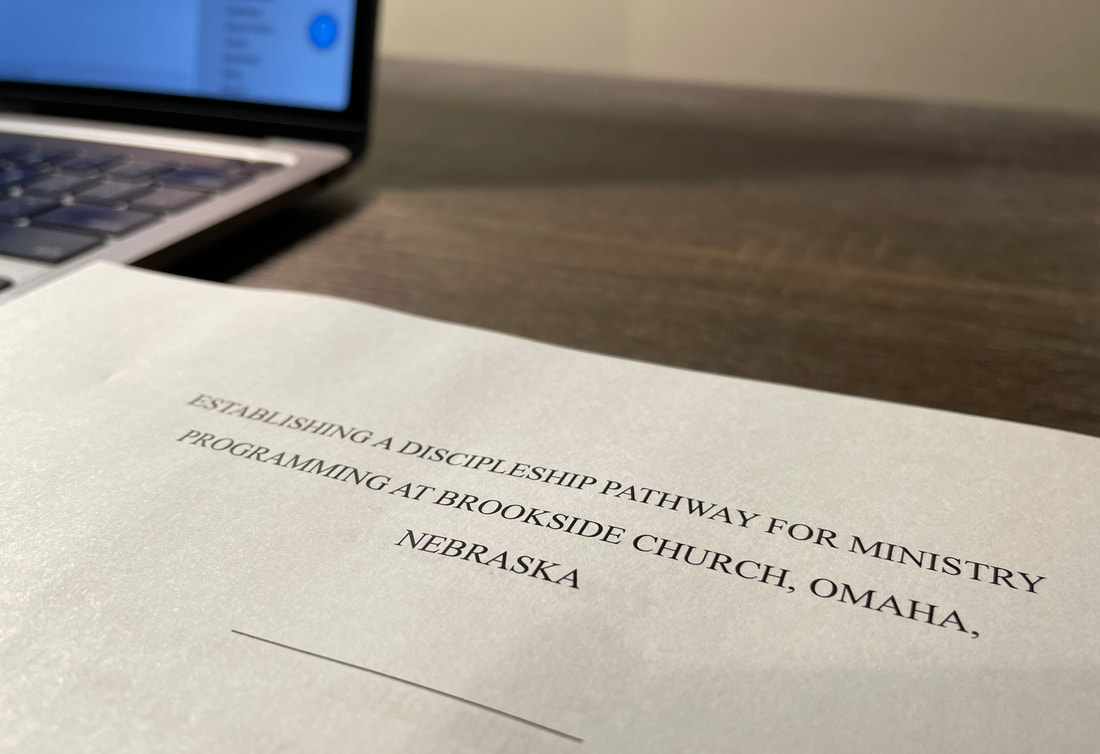|
Graduate-level theological training is coming to Omaha! This training is local and it’s live — so this about more than just consuming content. You can participate in a way that forms you, builds community, and serves others.
Oh yeah — and you’ll see that this training is SO AFFORDABLE. (Which is of course always good!) Below you'll find a few brief videos orienting you to what's coming:
One more thing before you scroll to the videos: I've included the links here that I mention in the videos, so you have easy access to them:
Now, on to the videos:
0 Comments
Theology matters deeply. It summarizes and articulates what you believe about key topics that matter deeply. As Christians, the Bible must inform and invigorate our theology, as it is the final standard of authority for us — the primary means by which we discover who God is, what He's like and what He's doing, and what that invites us into. (You can find a bit more on the value of theology here, here, and here. It's something I plan on continuing to write about and advocate for.)
But agreeing that theology is important doesn't end the conversation; rather, it opens up the conversation to other worthwhile topics — topics like "What does theology offer?", and "How should we define it?" Or another topic, "How do we do theology well?" There are so many things to factor into doing theology well: for example, (1) we do theology with the whole Bible as our final authority, (2) we do theology in a spirit of confidence and humility, (3) we do theology for the purpose of increasing communion with the Triune God and advancing His mission in the world. All of these (and more) are important and worth continued reflection. In this post I want to focus on the relationship between theology and the local church. Specifically, I want to make a brief and very introductory case that when thinking about theology and the local church, four prepositions should shape the relationship: we do theology for, in, by, and with the church. Project accomplished!
Over the last two-and-a-half years, I have been chipping away at a Doctor of Ministry (DMin) in Applied Theology from The Southern Baptist Theological Seminary in Louisville, KY. I've loved the process (though it's been work for sure!), and am excited to be at this point where my final project has been defended, accepted, and successfully published — and now I'm just awaiting graduation in December. I'm excited to see how God might use this in and for the local church, as I seek to steward this education faithfully and for the advance of God's work. I'm getting questions about my doctoral project / dissertation, and so figured I'd provide a few snapshots of my work here. The title of my project is "Establishing a Discipleship Pathway for Ministry Programming at Brookside Church, Omaha, Nebraska." The "really short version" is that I've been working on how local churches as the local church can make disciples in obedience to Jesus' command in Matthew 28:19-20. My research focused on painting a clear PICTURE of discipleship from the Gospel of Matthew and the early chapters in Acts. Then I moved into constructing a concrete PATHWAY for discipleship that local churches can benefit from and apply practically. It's been fun already to "translate" this into two courses (both five sessions) I've been able to teach at Brookside — one specifically designed for ministry leaders, and another for the broader congregation. Below I've included PDF snapshots of the (1) Table of Contents and (2) abstract where the work is summarized further. If you were talk with most any seasoned teacher, they'd likely nod in agreement that the craft of teaching includes the idea of "taking others somewhere." This could mean helping them grasp new content, see things in a new light, practice new habits, change how they relate to others, and grow in virtue.
To play off this picture that teaching is taking others somewhere, here are a few brief tips I'd recommend to make this "trip" of teaching effective at helping the learner get from point A to point B.
I recently preached on Ephesians 2:1-10 at Brookside Church - a passage which I would say "pound for pound" is the best ten-verse spotlight on God's amazing grace that we find in the New Testament.
Here's a quick outline of the passage at a glance: It's Not Too Late! Our Highlight Reel of the Top 5 Blog Posts Each Month, for the Last 6 Months7/28/2018 Did you miss some of the most frequented posts at the Brookside Institute recently? It's not too late!
Based on the number of "hits" each month, here's our highlight reel of the top 5 posts here on the Brookside Institute blog for the last six months - January 2018 through June 2018. Take a minute to scroll through the list below, and either catch up on things you may have missed or revisit things that were especially helpful.
I love to teach. I believe that a healthy teaching ministry is vital to the life of a vibrant local church. And I want to emphasize a healthy, deeply-understood gospel centrality as I teach.
Since that's the case, I'm grateful for how Trevin Wax - Bible and resource publisher at Lifeway Christian Resources - articulates what gospel-centered teaching looks like in this brief (less than 3 min) video clip. I'm including it here, both to circulate good content via this site, and to keep it for handy reference for the future! :) I've mentioned a few times already on this site that theology is important in and for the life of the church, but that sound theology isn't the ONLY the thing a church should be concerned with. Here's one short excerpt from a previous post: So a right theology is not enough - at least not if we define theology primarily in terms of what we KNOW at a cognitive level. We also need to respond rightly - with faith, trust, awe, worship, and obedience" (We NEED Sound Theology. And We Need MORE THAN Sound Theology. We need to keep this mind - in all the ways this quote highlights and more. But I also want to keep my foot on the gas pedal of the important - essential! - contribution that sound theology does make in and for the life of the local church. I love how Keith Johnson brings this out in his recent Theology as Discipleship (p. 77). Read this slowly: We practice theology in order to guide the church as it thinks and speaks about God. This work is our specific commission. God has given us the task of bringing order to the church's language, and this task puts in a position of service rather than superiority. We are responsible for directing the church so that its prayer, worship, and preaching correspond to God's being and character. Our goal is to help the church become confident that its claims about God are true so it can teach believers within the church - and proclaim the gospel to those outside the church - in grace and truth" (Keith L. Johnson, Theology as Discipleship, p. 77). Let's not abandon this "specific commission" Johnson calls us to. We need to champion theology, we need to create space to read and study theology, and we need to teach theology. As we do this, our posture is one of service. Our goal is to faithfully align with God's self-revelation in the Bible (no more, but no less) to equip the church in her prayer, worship, preaching, service, and witness. The local church needs the essential contribution theology makes. If you liked this post, you may be interested in...Based on the number of "hits" each month, here are the top 5 posts here on the Brookside Institute blog for the last six months - January 2017 through June 2017. Take a minute to scroll through the list below and either catch up on things you may have missed or revisit things that were especially helpful.
We're just wrapping up the "Things to Fight For" series that we've been in the last few weeks. (I encourage you to go online to www.brookside.net and listen to the sermons. Go to our messages link and find the sermons preached May 21-July 02, 2017.)
Each week, we've looked closely at the Bible to see what it says about the following topics:
To help Brooksiders get and stay "in the fight" in these areas, each week we've also been recommending books that will drill down more deeply into each of the topics. These book recommendations are a great way to multiply an ethos of equipping in the life of the church. I figured it'd be worthwhile to collect ALL of the book recommendations across the entire series, and put them in one place. Check out what follows for the books we recommended each week during this "Things to Fight For" series: |
Tim WiebeChristian. Husband. Father. Pastor. Learner. Contributor. Reader. Categories
All
Archives
June 2024
|
© 2014-2024 | 11607 M Circle, Omaha NE, 68137 | www.thebrooksideinstitute.net









 RSS Feed
RSS Feed
